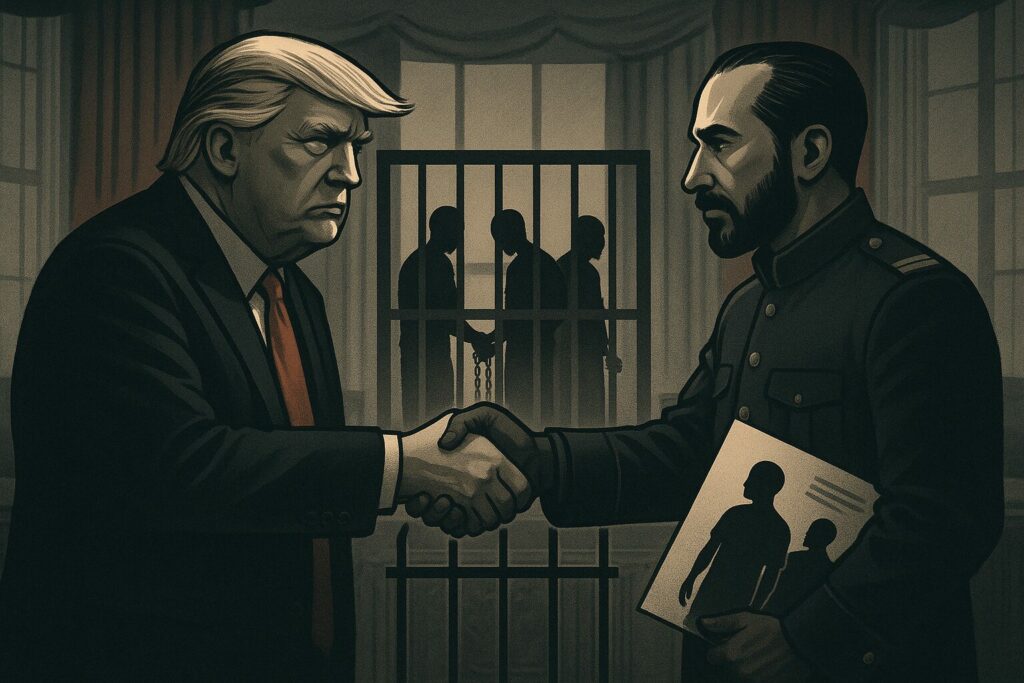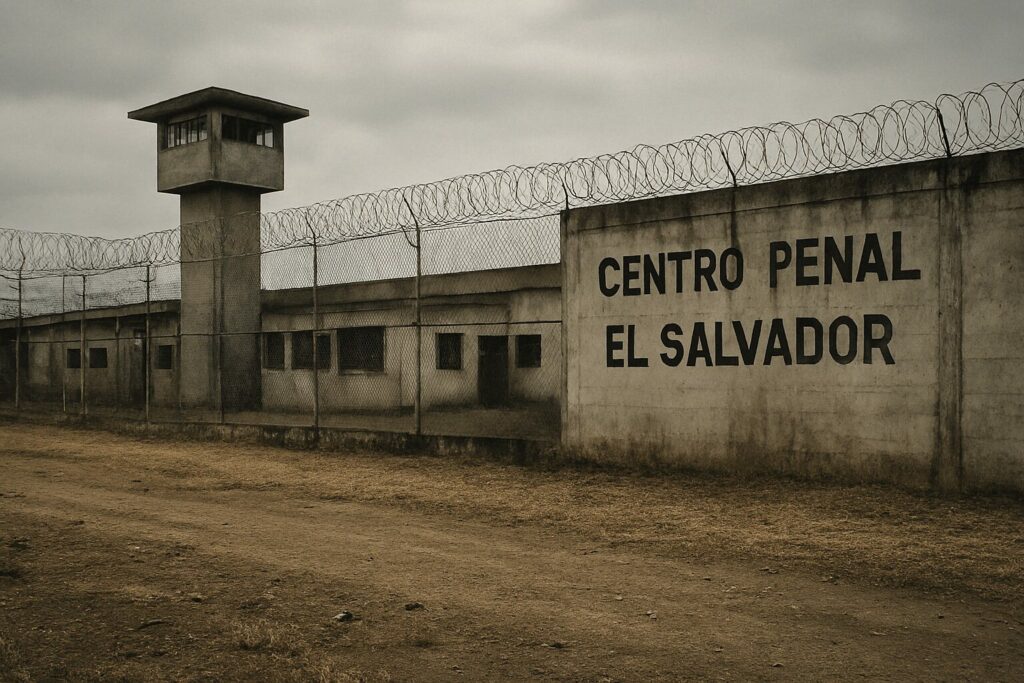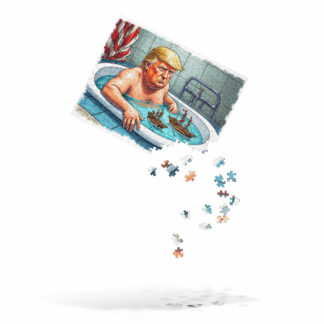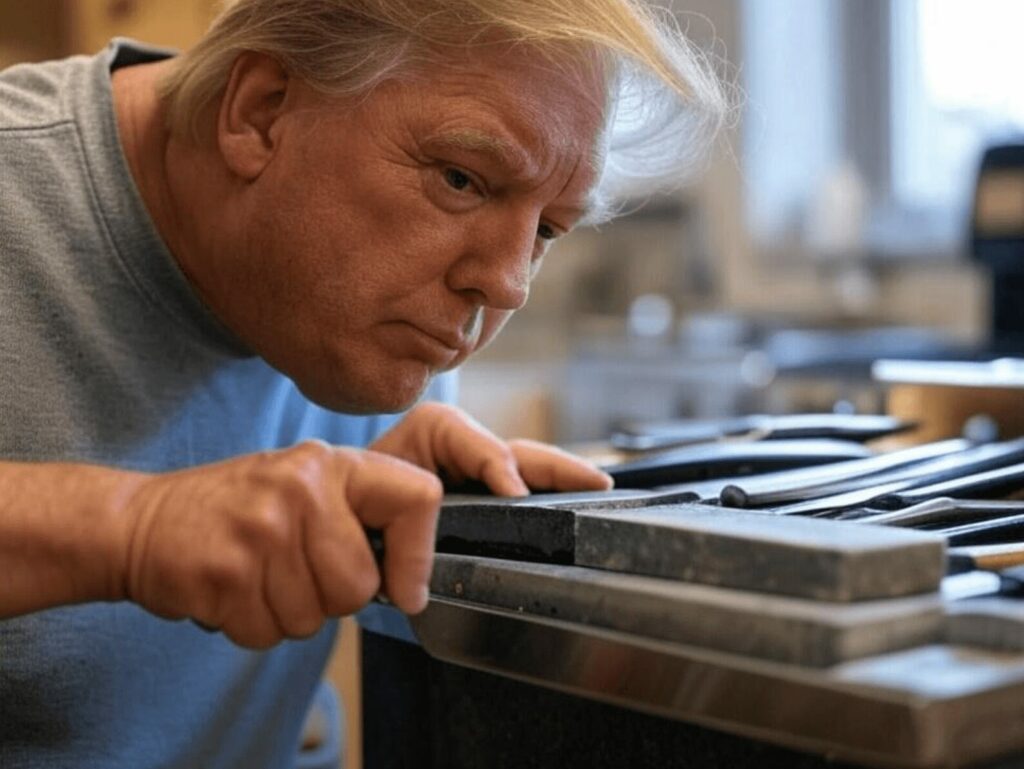
Donald Trump’s cabinet nominations resemble a “junk drawer of dull knives”—a chaotic collection of unqualified loyalists, placeholders, and ineffectual appointees. This deliberate assembly of mismatched and ineffective figures is not just incompetence; it is strategy. Like dull knives, these nominees cannot cut effectively, nor can they resist the hand that wields them.
This metaphor also hearkens back to a darker historical precedent: Hitler’s Night of the Long Knives. In 1934, Hitler purged his party of internal threats, consolidating power under his personal control. Trump’s cabinet reflects a bloodless version of this tactic, where opposition is eliminated not through violence but through passive compliance, intentional dysfunction, and manipulation of the government’s structure.
Americans are increasingly primed to accept a “bloodless coup.” From January 6th rhetoric to talk of Kamala Harris stepping in for Joe Biden, unconventional shifts in power are becoming normalized. Trump’s cabinet—this junk drawer of dull knives—fits into this pattern. It consolidates power while disguising itself as routine governance.
The Junk Drawer of Dull Knives: A Cabinet Designed to Fail
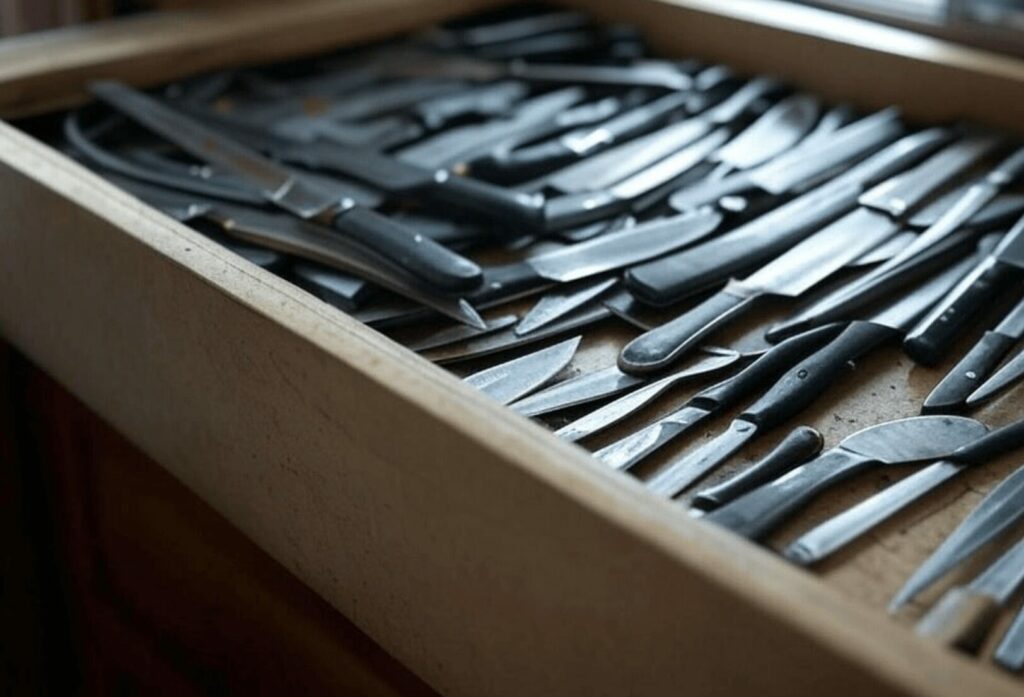
Trump’s cabinet nominations are not intended to govern effectively—they are designed to avoid oversight and ensure loyalty. Like dull knives in a junk drawer, these nominees lack the sharpness to lead but serve Trump’s purpose of eliminating dissent within his administration.
Consider some of the nominations:
- John Phelan (Navy Secretary): With no military experience or strategic acumen, Phelan ensures that the Department of the Navy will not challenge Trump’s decisions, even as maritime conflicts escalate globally.
- Robert F. Kennedy Jr. (HHS Secretary): Known for his focus on environmental advocacy rather than public health, Kennedy’s misaligned expertise and divisive views on vaccines create dysfunction in a critical department.
- Linda McMahon (Education Secretary): A former wrestling executive with no background in education policy, McMahon’s nomination exemplifies Trump’s unserious approach to governance.
- Pete Hegseth (Defense Secretary): A media-savvy loyalist better suited to public relations than managing the Pentagon, Hegseth is another example of Trump prioritizing loyalty over competence.
Each nominee, whether unqualified or intentionally misaligned with their department’s mission, weakens the federal government’s ability to function effectively. This weakness is intentional. A dysfunctional cabinet guarantees no internal opposition to Trump’s agenda, allowing him to consolidate power unchecked.
World Liberty Financial: Trump’s Private Economic Coup Club
Trump’s agenda centers on World Liberty Financial. The firm is owned by Trump, his sons, and their allies. It seeks to privatize the nation’s monetary system. The goal is to replace the Federal Reserve and U.S. dollar with a central bank under Trump’s control. This is not about empowering the nation. Trump’s “merger” of public and private power would harm millions of Americans. It would disenfranchise them while exposing the U.S. economy to foreign influence.
Adversaries like Russia and China could exploit this private central bank, undermining U.S. sovereignty and security.
This privatization scheme is the ultimate betrayal of Trump’s “America First” rhetoric. It sacrifices national stability for personal enrichment, leaving the American people to bear the consequences of Trump’s financial ambitions.
A Distraction From The Decline of The American Empire
Trump’s recent imperial rhetoric—annexing Greenland, reclaiming the Panama Canal, and dismissing the Northern border as an “artificially drawn line”—is a desperate attempt to distract from America’s waning global influence. These grandiose plans serve as a smokescreen for the erosion of U.S. military and diplomatic power, particularly in international waters.
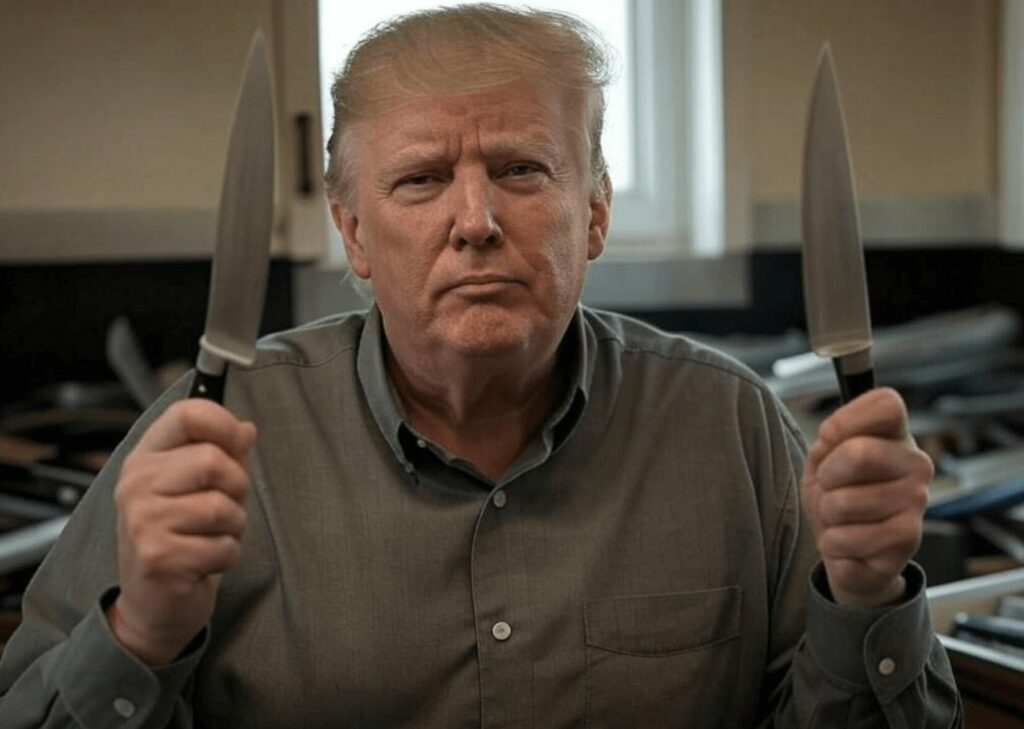
But unlike historical empires, Trump’s vision is not grounded in a coherent strategy or national interest. Instead, it is a hollow resuscitation of imperial ambitions, alienating allies like Canada and NATO partners while failing to address the real challenges facing America.
These distractions also highlight the hypocrisy of Trump’s “America First” narrative. By prioritizing territorial expansion over domestic stability, Trump abandons the isolationist principles that once resonated with his base.
Stopping This Roll-Up Consolidation of Power
Trump’s consolidation of power extends beyond his cabinet. A complicit Congress—paralyzed by fear, political calculation, or indifference—has largely stepped aside, allowing Trump to proceed unchecked. Even Democrats who once decried Trump’s actions as an “insurrection” now hesitate to challenge him, enabling his roll-up of power. Some lawmakers justify their inaction by pointing to the conservative majority on the Supreme Court, assuming Trump’s agenda is inevitable.
But this abdication of responsibility overlooks the broader implications of unifying government around one man. Like a corporate M&A strategy, Trump’s “roll-up” of authority dismantles oversight and accountability, leaving the federal government entirely under his control.
Cleaning Out Trump’s Junk Drawer
The parallels to Hitler’s Night of the Long Knives are stark. While Trump’s methods are bloodless, the goal is the same: eliminate internal opposition, centralize power, and reshape government to serve personal ambitions. His “junk drawer of dull knives” achieves this not through violence but through passive compliance, ensuring that no one in his administration has the ability—or the will—to resist.
This bloodless purge extends beyond the cabinet to Congress and the judiciary, where fear and apathy have allowed Trump to transform democratic institutions into tools of his personal empire. At a time when America faces mounting challenges—economically, diplomatically, and militarily—this deliberate dysfunction leaves the nation vulnerable to both internal and external threats.
Sharpen Your Blades
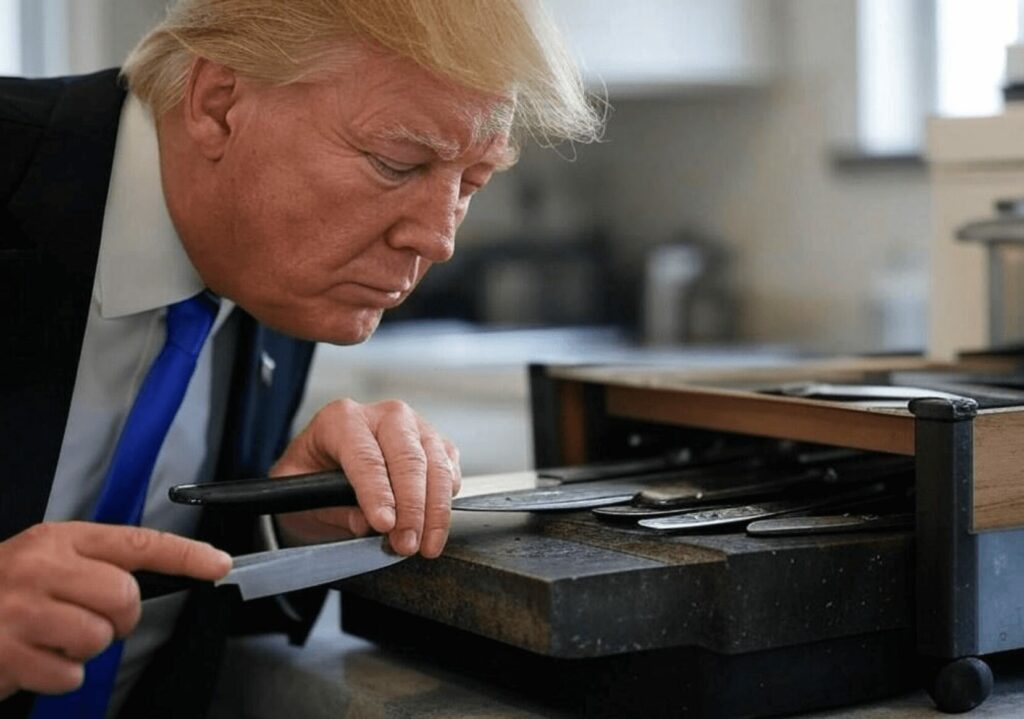
Trump’s cabinet is not a team of leaders—it is a collection of dull knives, chosen for their inability to cut against his agenda. His privatization schemes, imperial distractions, and consolidation of power represent a direct threat to America’s democratic foundations.
The stakes are too high to accept this erosion of governance as inevitable. Congress must reclaim its role as a check on executive power. Allies must stand firm against Trump’s destabilizing rhetoric. And Americans must recognize the consequences of allowing this “junk drawer of dull knives” to carve away at the nation’s integrity.
The time for action is now before these dull knives sever the very fabric of democracy.


